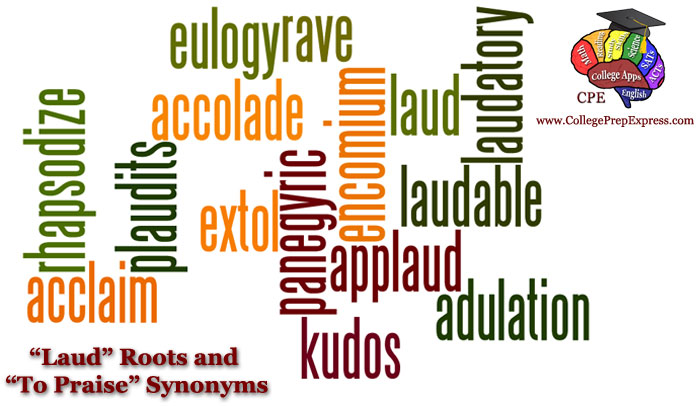Praise or laud as virtues – Praise and laud as virtues have the power to transform our interactions, fostering positive emotions, strengthening bonds, and promoting gratitude and humility. This exploration delves into the inherent virtues of praise and laudation, their impact on interpersonal relationships, and their social and cultural significance.
From the strengthening of bonds between individuals to the shaping of cultural values, praise and laudation play a vital role in our lives. By examining the ethical considerations and exploring applications in various contexts, we gain a deeper understanding of how to harness the power of praise and laudation for meaningful and impactful communication.
Virtues of Praise and Laudation

Offering praise and laudation holds inherent virtues that can positively impact individuals and foster a harmonious society. These virtues include promoting positive emotions, fostering a sense of appreciation, and nurturing gratitude and humility.
Positive Emotions and Appreciation
Praise and laudation have the power to uplift spirits and evoke positive emotions such as joy, happiness, and contentment. When individuals receive recognition and appreciation for their efforts or accomplishments, it boosts their self-esteem and well-being. Moreover, expressing gratitude and appreciation towards others creates a sense of warmth and connection, strengthening social bonds and fostering a positive atmosphere.
Impact on Interpersonal Relationships

Praise and laudation play a pivotal role in nurturing interpersonal relationships by fostering a sense of connection, trust, and mutual respect. Expressing appreciation and recognition strengthens bonds between individuals, improving communication and resolving conflicts effectively.
Strengthening Bonds
When individuals receive praise or laudation, they feel valued and appreciated, which in turn strengthens their connection to others. This positive reinforcement creates a sense of belonging and enhances the overall relationship.
Improving Communication
Expressing praise and laudation encourages open and honest communication. When individuals feel appreciated, they are more likely to share their thoughts and feelings, leading to better understanding and empathy. This positive feedback loop improves communication and fosters a healthy exchange of ideas.
Resolving Conflicts
Praise and laudation can help resolve conflicts by diffusing tension and creating a more positive atmosphere. When individuals focus on the positive aspects of a situation or the contributions of others, it becomes easier to find common ground and reach a mutually acceptable solution.
Building Trust and Mutual Respect
Sincere praise and laudation build trust between individuals. When individuals feel appreciated and recognized for their efforts, they develop a sense of trust and confidence in the other person. This trust forms the foundation for strong and lasting relationships.
Social and Cultural Significance: Praise Or Laud As Virtues

Praise and laudation play a profound role in various cultures and societies, shaping social interactions, fostering cultural values, and reinforcing societal norms.
In many cultures, praise and laudation are deeply embedded in traditions and rituals. They are used to honor individuals for their achievements, recognize contributions to the community, and reinforce desirable behaviors. For example, in some African societies, praise poetry is a traditional form of laudation used to celebrate heroes, leaders, and individuals who have made significant contributions to their communities.
Influence of Societal Norms
Societal norms significantly influence how praise and laudation are expressed. In cultures that emphasize humility, praise may be more subtle and indirect, while in cultures that value self-expression, praise can be more overt and enthusiastic.
- In Japan, for instance, praise is often expressed through indirect compliments and subtle gestures, such as bowing or offering gifts.
- In contrast, in Western cultures, praise is often more direct and verbal, with individuals openly expressing their admiration and appreciation.
Shaping Cultural Values
Praise and laudation have the potential to shape cultural values and traditions. By consistently praising certain behaviors or qualities, societies reinforce their importance and encourage individuals to adopt them.
- In cultures that emphasize collectivism, praise may be directed towards individuals who contribute to the well-being of the group, fostering a sense of unity and cooperation.
- In individualistic cultures, praise may be more focused on personal achievements and self-reliance, encouraging individuals to strive for excellence.
Ethical Considerations

As with any form of communication, praise and laudation raise ethical concerns that should be considered. It is important to approach these virtues with integrity and mindfulness to ensure they are used for their intended purposes and do not cause harm.
Authenticity and Sincerity
Authenticity and sincerity are crucial when offering praise or laudation. Insincere or exaggerated expressions can undermine the value of the virtue and erode trust. It is important to ensure that the praise is genuine and reflects the individual’s true feelings and admiration. This requires careful consideration and thought before expressing praise, avoiding impulsive or superficial compliments.
Appreciating and recognizing the merits of others is a noble act. Throughout history, individuals like Andre Fabre de la Bruyere have extolled the virtues of praising and commending the commendable qualities in others. Their insights remind us that celebrating the good in others not only elevates them but also fosters a positive and appreciative society.
Potential for Manipulation
While praise and laudation can be powerful tools for motivation and encouragement, they also have the potential to be used for manipulation or self-serving purposes. When praise is used excessively or insincerely, it can become a form of control or manipulation, designed to influence the behavior of others. Additionally, individuals may use praise to gain favor or advance their own agendas, rather than offering it for genuine reasons.
Applications in Various Contexts
Praise and laudation have extensive applications in various settings, proving to be effective communication strategies. Their incorporation into interpersonal interactions, education, and the workplace can yield numerous benefits, fostering positive relationships and enhancing motivation.
Education, Praise or laud as virtues
In educational environments, praise and laudation can encourage students’ effort, boost their confidence, and promote academic achievement. When educators provide specific and timely praise for students’ accomplishments, it reinforces desired behaviors and fosters a growth mindset. Laudation, on the other hand, can recognize exceptional achievements and inspire students to strive for excellence.
Workplace
In the workplace, praise and laudation can enhance employee morale, increase productivity, and foster a positive work environment. When supervisors offer sincere praise for employees’ contributions, it acknowledges their hard work and dedication. Laudation, when used sparingly for outstanding accomplishments, can motivate employees to go above and beyond expectations.
Personal Relationships
In personal relationships, praise and laudation can strengthen bonds, build trust, and create a sense of mutual appreciation. When individuals express gratitude and admiration for their loved ones’ qualities and actions, it fosters emotional connection and reinforces positive behaviors. Laudation, when used to celebrate significant milestones or achievements, can create lasting memories and enhance the overall relationship.
Answers to Common Questions
What is the difference between praise and laud?
While both praise and laud express admiration, praise typically focuses on specific qualities or achievements, while laud often refers to broader accomplishments or character traits.
How can praise and laudation promote gratitude?
By expressing appreciation for others, we foster a sense of gratitude in ourselves, recognizing the positive contributions they make to our lives.
What are some ethical considerations related to praise and laudation?
It is important to offer praise and laudation sincerely, avoiding manipulation or self-serving purposes. Authenticity and specificity contribute to the meaningful impact of praise.